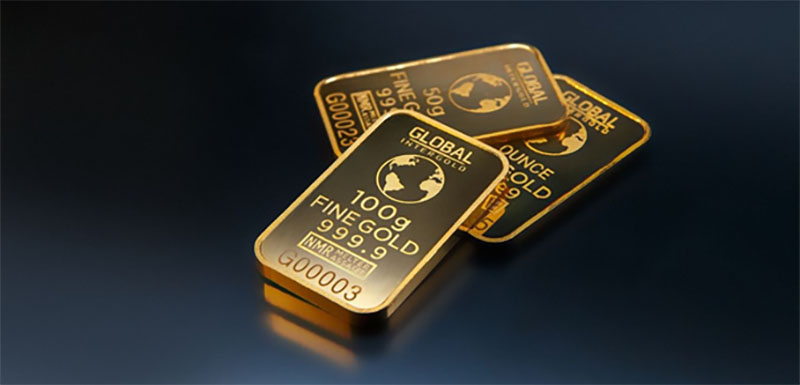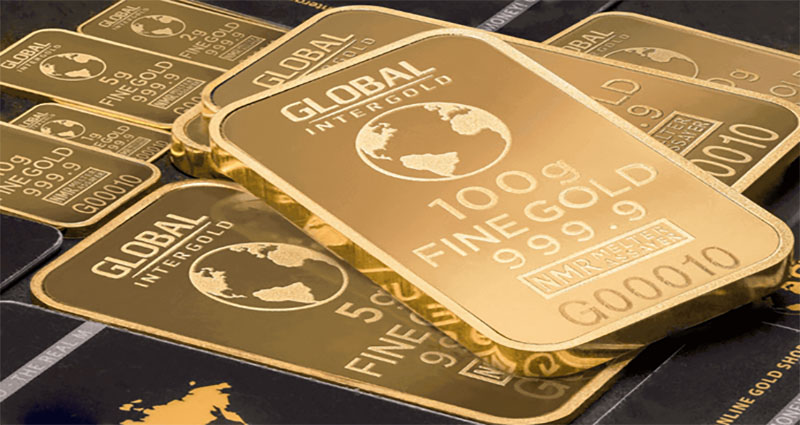We can all agree that a gold IRA is retirement account that gives chance to investors to take advantage of precious physical metals such as gold, which you would not get with a standard IRA.
If you wish to take advantage of precious metals inside of it, the best course of action is to make a self-directed account administered by a custodian who will store and handle the metal. Keeping gold within IRA comes with significant fees, which is why you should also understand the tax ramifications.
We recommend you to check here to understand everything about investing in precious metal individual retirement account.
However, gold comes with a glittering appeal, mainly because it is a durable, tangible asset that traditionally keeps or increases value during political upheavals, inflation, and the lousy stock market. Even if you do not earn too much by investing, meaning it lacks high return as other riskier options, you can use it as insurance from stocks, mutual funds, and bonds.
The facts are that gold is one of the few commodities you can hold in an individual retirement account. However, before you buy pounds of bullion, you should understand each step along the way.
What is a Gold IRA?

The main idea is that you should open a new account because a regular one does not include the ability to own precious physical metals. Instead, you should create a separate one called a gold IRA.
We can also call it precious metal individual retirement account, mainly because it works similarly to the standard one. It means you will get the same contribution limits and distribution rules.
However, instead of holding paper assets such as bonds and stocks, you will invest in physical bullion, which includes bars or coins of approved precious metals such as palladium, platinum, and silver.
You can also invest in stocks, meaning the shares of mining and production companies, mutual funds that invest in stocks or bullion, and ETFs that track indexes so you can speculate.
Tips for Investing in Gold IRA
Suppose your goal is to own physical gold in an IRA. In that case, the first step is to create a self-directed individual retirement account, meaning you can manage it directly with the custodian.
We are talking about IRS-approved financial institutions such as brokerage, trust companies, or banks. At the same time, you should learn more about the best precious metals IRA in 2022, which will help you make up your mind.
Another critical factor is to choose a precious metals dealer that will make actual purchasers for your account. We recommend asking a custodian to help you find the best dealer. Remember that not every custodian will offer you the same investment options. Therefore, you should ask whether they accept precious physical metals beforehand.
You can set it up as a traditional, tax-deductible, or Roth IRA, which features tax-free distributions. Of course, the next step is to find an account with contribution, transfer, and rollover options from other plans such as 401k, 403b, and many more.
Afterward, it would be best if you chose the investment for an account and a metals dealer and custodian to handle transactions. Remember that you cannot purchase any coin or bar. It should meet IRS fineness standards when it comes to weight and purity.
You cannot buy numismatics. When buying coins, you can only choose the ones created by certain government mints. Besides, it would help if you stored it in an IRS-approved depository.
Benefits
- Tax Advantages – Gold IRA comes with special tax treatment as standard accounts. Contributions undergo a deduction, while withdrawals are tax-free regarding Roth accounts.
- Long-Term Hold – Physical precious metals is not as liquid as other investments, meaning it is a buy-and-hold investment. That way, you can keep it for decades until you reach specific retirement age.
- Additional Control – Since these accounts are self-directed, you can directly manage holdings and make investment decisions.
Enter this site: https://www.forbes.com/advisor/investing/gold-ira/ to understand the importance of investing in gold for retirement.
Downsides
- Lack of Tax-Advantaged Income – You will not get interested in dividends and other returns. Therefore, you cannot take advantage of the tax-free growth aspect. Of course, you can get a break on capital gain from selling your gold at a profit, which is vital to remember.
- High Fees – Since you cannot keep precious metals in the bank’s deposit box or at home, you should pay a certified custodian to insure, store, buy, ship, and transport the precious metals you wish to have. It means custodial fees are higher than regular expenses.










